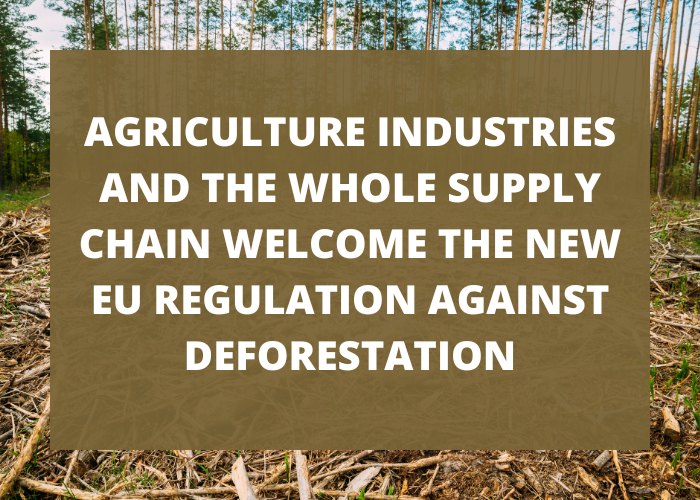Supply chains welcome the EU regulation against deforestationPRESS RELEASE
- 13 February 2023
- Posted by: Competere
- Categories: highlights, Media, News, SUSTAINABLE NUTRITION

On February 9th, Competere hosted a roundtable to provide insight into the challenges and impacts of the EU zero-deforestation regulation on producing countries.
.
AGRICULTURE INDUSTRIES AND THE WHOLE SUPPLY CHAIN WELCOME THE NEW EU REGULATION AGAINST DEFORESTATION
Producing countries and SMEs need resources, technologies and time to implement the measure.
The new EU agreement aimed at prohibiting the import of goods causing deforestation is broadly welcomed by the entire agrifood industry, exporting-importing companies, exporting countries, as well as the whole supply chain. Yesterday, almost 200 people, industry leaders, producers’ representatives and experts attended the event Competere held to discuss the impact of the new EU zero-deforestation regulation. They all agreed that the new regulation is a positive step that provides a platform for ongoing discussions about sustainability standards and the efforts being made by producing countries to meet them. However, implementing this new regulation requires investment and technologies, which will take time to become effective, especially for exporting countries and the smallholder.
“Now it’s time for the EU and its member countries to adopt the regulation, but there is obvious confusion and lack of clarity. Producing countries and companies must be engaged in a proactive process which aims to commit human and financial resources, investments in technologies and equipment (blockchain and satellite monitoring). Smallholders are bearing the highest costs, and they must be supported. This will benefit sustainability and trade between the EU and producing countries, leading to more productivity, prosperity, and improved life conditions” said Pietro Paganini.
“We are moving from voluntary to mandatory measures – added Felipe Carazo, Head of Public Sector Engagement, Tropic Forest Alliance – and this will take at least 18 months, but small and medium enterprises may need more time to implement all the necessary requirements”.
Vijaya Subramaniam, Head of Peat Ecosystem & Biodiversity Unit, MPOB stated: “As a producing country, we are affected by the new EU regulation. We have been working towards this path for a long time and we are now ready. Deforestation is steadily decreasing. We already cap the total area of oil palm cultivation at 6,5 million hectares. We are also ready for traceability and certification, and we could be at the forefront on this, but it is important to avoid excess in bureaucracy”. On the other hand, Xiomara Lima, Corporate Communication Manager, Grupo HAME underlined that “technology such as satellite monitoring is a powerful tool to fulfil the regulation’s requirements and to monitor the territory to prevent deforestation. By the way, we need to keep working on innovation and technology. There is still much to do on this side”.
.
>> To find out more about the roundtable, click here <<
